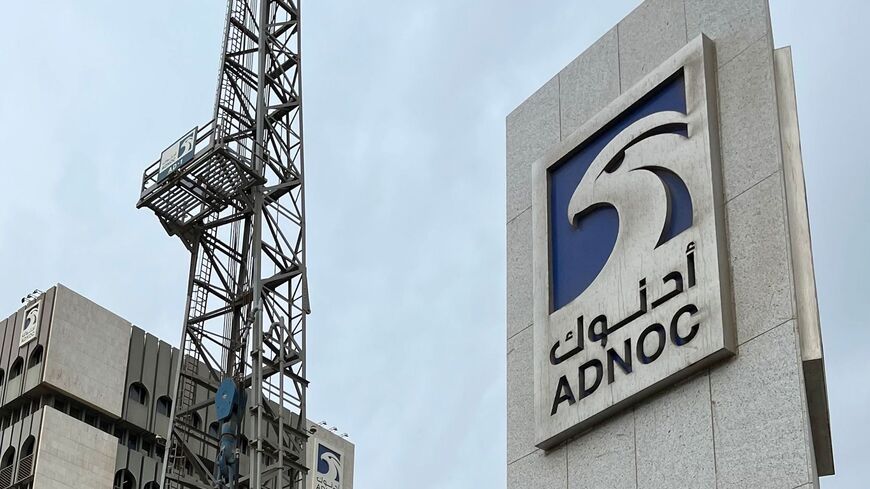Algeria ready to deliver e-commerce growth
Al-Monitor Pro Members
Samuel Wendel
Senior Market Research Analyst, Al-Monitor
July 15, 2023
A new strategic partnership has African e-commerce giant Jumia expanding in a market where signs increasingly point to growth potential: Algeria. In July 2023, Jumia revealed it was collaborating with the Algerian delivery company Nord et Ouest Express to create 50 new collection points across the country of 45 million people. The move arrives as Algeria is forecasted to be the fastest growing e-commerce market in the Middle East and North Africa (MENA) in the coming years, potentially more than doubling in size to reach a market value of $4.5 billion by 2026. That’s positioning companies and startups alike to pursue untapped opportunities in a country long billed as a “closed economy.”
- Algeria’s e-commerce market is growing, but it remains relatively limited in scope, notes the International Trade Administration. Algeria’s e-commerce market in 2022 was worth $1.8 billion, according to an industry report from UAE e-commerce freezone EZDubai, published in collaboration with Euromonitor. In MENA that placed it behind Israel’s e-commerce market size of $14.3 billion, Saudi Arabia’s $6.6 billion, the UAE’s $5.9 billion, Iran’s $3.2 billion, and Egypt’s $2.1 billion.
- Israel, Saudi Arabia and the UAE are set to remain the largest markets going forward, but EZDubai forecasts that Algeria will be MENA’s fastest growing e-commerce market by posting an expected 25% compound annual growth rate (CAGR) between 2022-2026. That would see its market value reach about $4.5 billion by 2026.
- This comes after Algerian e-commerce enjoyed a 37% CAGR between 2018-2022, just behind Israel and Egypt’s 39% CAGR during that span, while Iran’s rate was 33%, the UAE’s 26% and Saudi Arabia’s 13%. Yet, EZDubai now foresees growth moderating in these markets: Israel’s projected CAGR between 2022-2026 is 11%, Iran and Egypt’s 10%, and the UAE and Saudi Arabia’s 9%.
- Online markets sprang up in Algeria over a decade ago, but conditions haven’t been conducive for rapid e-commerce growth. Consider: when Amazon acquired MENA e-commerce giant Souq.com in 2017 for $580 million, only about 48% of Algerians were using the internet, while roughly 95% of the population in the UAE and Saudi Arabia were already online.
- Other factors undermining e-commerce growth in Algeria range from bureaucracy to a lack of consumer trust, while payments issues are also a major roadblock: only 26% of Algeria’s population made or received digital payments in the past year as of 2022, according to Statista.
- Algeria’s nascent tech startup ecosystem has also attracted little investment. MENA startups raised almost $4 billion across 795 deals in 2022, but Algeria only recorded two of those investments, while Morocco registered 27 and Tunisia 43, according to Wamda. Brain drain is another issue.
- There are also regulatory factors. In 2018, Algeria’s government passed a law establishing its first e-commerce regulations, which required online markets to host their websites locally. Under current law, Algerian citizens cannot buy items from online from abroad either.
- Against that backdrop, the likes of Amazon, Noon or AliExpress aren’t present on the ground in Algeria currently. The big regional player on the scene is Nigeria’s Jumia, which entered Algeria back in 2014, when it was still a relatively new startup.
- Currently, the local leader is OuedKniss.com, an online classified platform founded in 2006. According to web analytics firm Similarweb, OuedKniss is currently Algeria’s most-visited e-commerce and shopping platform: it received 8.4 million visits in June 2023, making it the country’s 7th most popular site overall in June 2023. Meanwhile, Jumia ranked 99th in Algeria overall with about 809,000 visits.
- For comparison: the UAE’s most popular e-commerce site is Amazon.ae, which in June 2023 recorded 24 million visits (72.5% of which were from UAE users). That roughly equates to each UAE inhabitant visiting Amazon.ae twice in June, while the corresponding rate for OuedKniss in Algeria was about 0.17 visits per person.
- Looking ahead, Algeria’s e-commerce growth is expected to be driven by rising internet penetration and usage, supported by improving infrastructure, according to EZDubai. Algeria’s government has been seeking to increase internet penetration for years and the country is rolling out 5G technology.
- Those efforts have been producing results. According to DataReportal, Algeria had about 32 million internet users at the start of 2023, equaling internet penetration of 70.9%. That was up from 60.6% in January 2022 and 59.6% the year before.
- For comparison, DataReportel found Morocco had 33.18 million internet users at the start of 2023, equaling 88.1% internet penetration. That was up from 84.1% in early 2022.
- Simultaneously, Algeria had 48.53 million active cellular mobile connections in early 2023, equivalent to 107.2% penetration, again according to DataReportal. For context, Morocco had 50.19 million such connections, equivalent to 133.3% penetration.
- In 2021 the FT-Omdia Digital Economies Index ranked Algeria as a country to watch among tech growth markets for payments cards between 2020-2024, noting that while it remains a cash dominated market, the growth of prepaid and debit cards—particularly to support commerce—will be strong, alongside a shift to joint ATM/debit cards.
- Algerian tech startups also look set to benefit from recent government legislation and support as the country seeks to diversify its economy away from hydrocarbons (although it has benefitted recently from high energy prices).
- In 2022, Algeria’s government announced plans to invest $411 million into local startups, which comes after it established a dedicated ministry for the knowledge economy, startups and micro-enterprises in 2019.
- The country recently saw a local tech player hit headlines: in November 2022 the super app Yassir, a ride-hailing and delivery platform founded by Algerian entrepreneurs, announced that it had raised a $150 million funding round led by Silicon Valley investor BOND. Yassir has raised $193.25 million since launching in 2017 and currently operates in 25 cities across Algeria, Canada, France, Tunisia and Morocco.
- Algeria has also once again relaxed its “51/49” restriction requiring majority local ownership of all new businesses, which comes after the government reinstated the ownership requirement in 2021 for any company importing items into Algeria with an intent to resell.
Scenario 1: Foreign e-commerce players target Algeria
Robust local growth attracts more global and MENA e-commerce players to explore opportunities in Algeria in coming years. That sees foreign firms and investors seek market entry by pursuing acquisitions.
Yet, Algeria still features barriers to entry that may deter outsiders, while differences between the Maghreb and Middle East may also impede new market entrants.
Scenario 2: Algeria enjoys a tech startup boom
Encouraged by Yassir’s rise, investments flow into Algerian startups amid ongoing government support for the sector and rising foreign interest the country’s tech potential.
That said, Yassir’s appeal stems partly from its wider regional footprint and startup funding in MENA has constricted 2023. A local funding gap will likely persist, with foreign tech investors remaining elective around local deals in the near future.
Challenges remain, but recent reforms, improving connectivity and an emerging tech startup ecosystem all signal that Algeria’s digital economy is becoming more dynamic and ready to deliver solid e-commerce growth. However, it won’t surpass MENA’s leading markets and industry activity will retain a local flair. Algeria’s government looks poised to continue taking steps to boost e-commerce and support tech startups, but its protectionist economic tendencies remain in play — it’s unlikely we’ll see Amazon or Noon investing here anytime soon. Meanwhile, incumbent online marketplaces like Jumia are positioned to capture growth and there should be opportunities for other players to drum up new business, from B2B e-commerce services to fintech solutions.
Samuel Wendel is a senior market research analyst with Al-Monitor covering economic, tech and business trends across the Middle East. He has previously served as a journalist with Forbes Middle East and Wamda, where he reported on key industry developments spanning a range of sectors in the region.
We're glad you're interested in this memo.
Memos are one of several features available only to PRO Expert members. Become a member to read the full memos and get access to all exclusive PRO content.

Already a Member? Sign in
The Middle East's Best Newsletters
Join over 50,000 readers who access our journalists dedicated newsletters, covering the top political, security, business and tech issues across the region each week.
Delivered straight to your inbox.
Free
What's included:
Free newsletters available:
- The Takeaway & Week in Review
- Middle East Minute (AM)
- Daily Briefing (PM)
- Business & Tech Briefing
- Security Briefing
- Gulf Briefing
- Israel Briefing
- Palestine Briefing
- Turkey Briefing
- Iraq Briefing
Premium Membership
Join the Middle East's most notable experts for premium memos, trend reports, live video Q&A, and intimate in-person events, each detailing exclusive insights on business and geopolitical trends shaping the region.
$25.00 / month
billed annually
$31.00 / month
billed monthly
What's included:
Memos - premium analytical writing: actionable insights on markets and geopolitics.
Live Video Q&A - Hear from our top journalists and regional experts.
Special Events - Intimate in-person events with business & political VIPs.
Trend Reports - Deep dive analysis on market updates.
We also offer team plans. Please send an email to pro.support@al-monitor.com and we'll onboard your team.
Already a Member? Sign in






